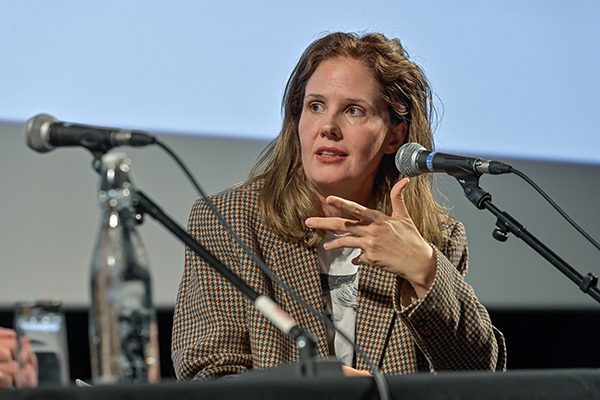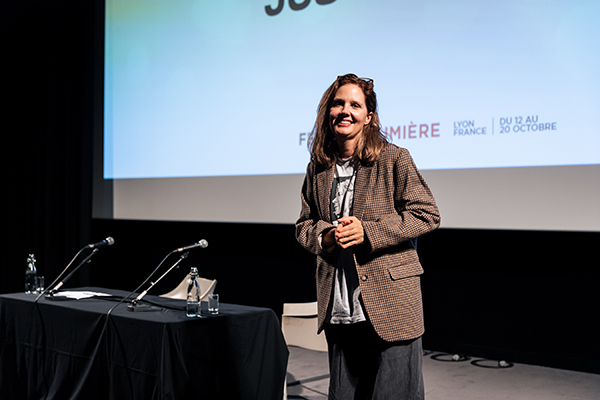Justine Triet,
passionate about others’ (cinema)
PostED ON 17.10.2024
Filmmaker-screenwriter Justine Triet, singling out some choice morsels, reveals the secrets (and depth) of her cinephilia.

© Jean-Luc Mège
The Exorcist by William Friedkin (1973)
When I was making my selection for this event, I realised just how many of my formative films were genre films. Especially from the 70s, there's a singular colorimetric scheme. As far as The Exorcist is concerned, don't worry, the clip we’ll show is very mild! What I find compelling about Friedkin is the realistic angle he takes: it's just the story of a mother trying to make her daughter feel better. And then there's the question of compulsion, the hellish house, those are themes that fascinate me. And the work on the sound is incredible: Friedkin used the squeals of pigs being slaughtered to make the screams even more frightening and realistic.
A Woman Under the Influence by John Cassavetes (1974)
This is a deeply moving film, without ever being moralistic. Although there’s no stereotype, it clearly shows the codes we have to live by. And it’s exactly the role of a woman who can no longer manage it. For a long time I thought this film was about madness, but then I realised that the subject was much broader than that. It's almost an action film where the action takes place in the house and the theme is gaining control of the impulse. It's not just the idea of being a good wife, a good mother, but it's also about keeping intact that icon of the family, even when all hell breaks loose.

© Léa Rener
When a Stranger Calls directed by Fred Walton (1979)
This is a genre film that's a bit like the ancestor of Scream. I discovered this movie thanks to director Bertrand Bonello: it's a fairly simple story about a babysitter. The first ten minutes are fun because you get more and more freaked out as soon as the phone rings. After fifteen minutes, we realise that the killer is in the house, the babysitter has barricaded herself inside, and everything is reversed by the mechanics of the narrative. The direction is strong and the sound is brilliant: those old telephone rings were jarring, yet I know a lot of scriptwriters who regret the disappearance of landline phones !
Girlfriends by Claudia Weill (1978)
This film is about simple things: friendship and love. It also shows the jealousy that can exist between two friends, which raises questions about the family. It talks about passion within friendship, which is something that is rarely shown in movies, especially between two women. This director hasn't made any other films and I thought it was cool to tell you about it here. What I find beautiful about this scene is that it highlights what it means to be a woman, and to see their friendship characterised by a term that would usually be reserved for romantic love.
The Things of Life by Claude Sautet (1970)
I rediscovered this film very late in life and I was flabbergasted – it borders on Antonioni. It's a work that influenced me a lot, particularly in terms of editing. It's an enthralling film because it's broken apart, like a jigsaw puzzle. One of the things that fascinates me about Sautet is the idea of the pace of life. The idea that you're never at the right tempo in life. I can't deny that this had a huge influence on me. The final scene where the character played by Michel Piccoli dies in a car accident is incredible! Sautet is not outdated, his way of capturing life, which defies our comprehension, is of incredible modernity!
Reported by Laura Lépine

